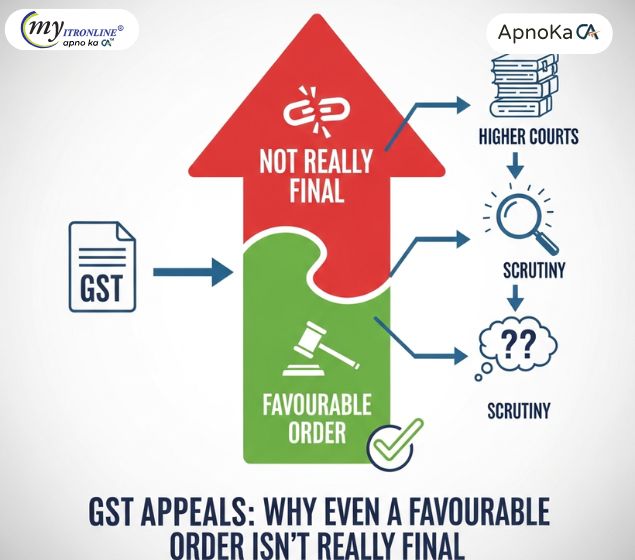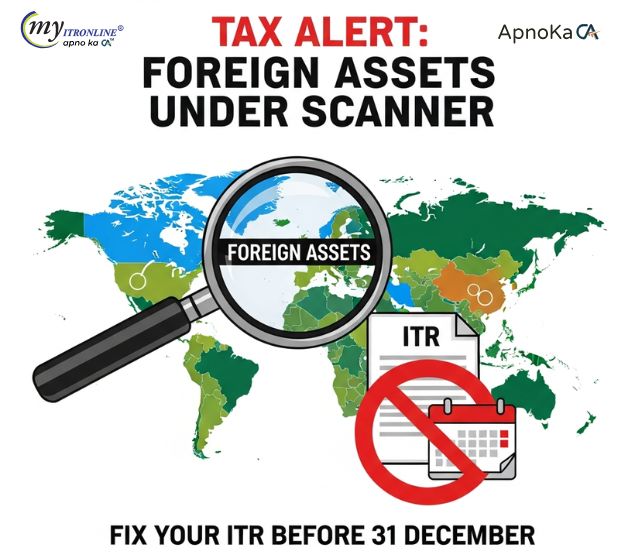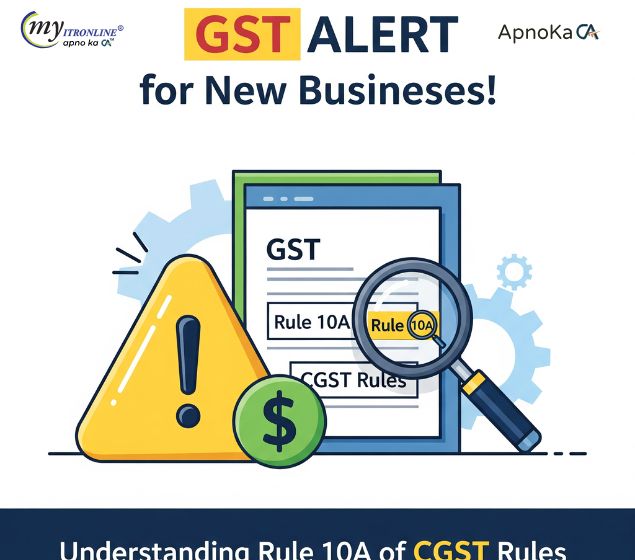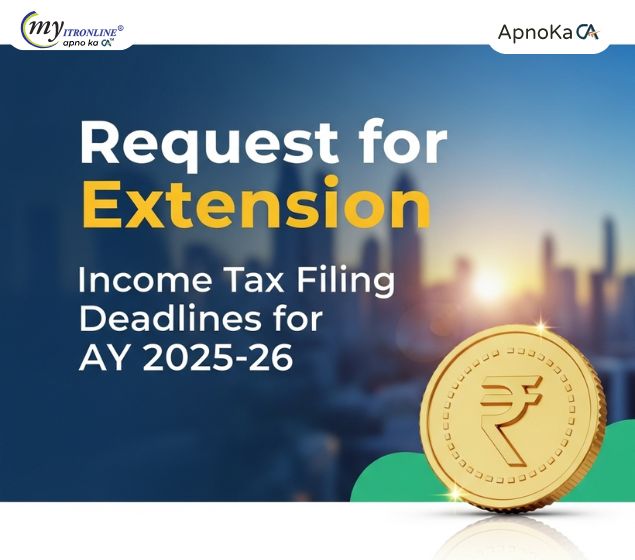December 2025 tax due dates: simple tracker for businesses and individuals
December 2025 tax calendar: important dates to remember
-
by Krishna
- Nov 29,2025
Effortless, Secure, and Reliable Tax Filing Solutions with Myitronline
File ITR yourself
We have changed the way people do tax filing in India. We don’t just get your tax return filed within minutes but get you maximum refunds in shortest time.
File ITR Now
Hire eCA Now
Entrust your taxes to our expert eCA Hire team. Benefit from dedicated assistance, comprehensive support, total transparency, and error-free filing.
Book Now
Trending Categories
Trending Highlights
View all highlightsGST
View all postExplore the world of Goods and Services Tax (GST) with our comprehensive guide. Learn about GST rates, compliance, benefits, and its impact on businesses and consumers. Stay informed about the latest GST updates and ensure you're making the most of this taxation system.
What's New in GST Registration? Breakdown of the April 2025 CBIC Circular
GSTR-1 Updates: Mandatory HSN Code Reporting Explained for Taxpayers
Latest GST Updates in India: What You Need to Know
Understanding GST Suo Moto Cancellation Penalty in India
GST Appeals Made Easier: Lower Pre Deposit Rules Under Finance Act 2025
GST Alert for New Businesses! Understanding Rule 10A of CGST Rules
GST Exemptions Uncovered: Smart Ways to Save on Taxes
Income tax
View all postUnderstanding income tax is crucial for managing your finances. Discover how income tax works, learn about tax brackets, deductions, and credits. Stay informed about changes in tax laws and filing requirements. Navigate the world of taxation with confidence and ensure you make the most of your financial opportunities.
Request for Extension of Income Tax Filing Deadlines for AY 2025–26
Income Tax Notice: Decoding Section 142(1) for Missing Deductions in Your ITR
Section 194R of the Income Tax Act: A Complete Guide
A Comprehensive Guide to Form 12BB: Claiming Tax Benefits and Rebates Made Easy
India Income Tax: Section 194LBA and TDS for Business Trusts
A Healthier India for All: Universal Coverage for Senior Citizens
EPFO Raises Auto Claim Ceiling to 5 Lakh: A Significant Shift for Provident Fund Members
Save Big on Taxes: Understanding Income Tax Allowances for Salaried Employees in India
A Comprehensive Guide to Returns and Forms Applicable to Individuals with Income from Business/Profession for AY 2024-2025
CBDT Launches Self-Help Tool for Immediate Responses to Income Tax Bill 2025
Finance
View all postDive into the world of finance and empower your financial future. Explore personal finance tips, investment strategies, budgeting, and more. Stay informed about global financial news and trends. Unlock the keys to financial stability and prosperity with our comprehensive finance resources.
IMPS Money Transfer: APNOKACA Highlights New Rules Effective February 1
Check EPF Balance Online SMS Call UMANG
New Cheque Bounce Laws 2025: Key Changes & Penalties Explained
Update Your UAN Details Easily: No Employer Approval Needed for Aadhaar Users
LLP Incorporation Fees in India: A Comprehensive Guide to Registration Costs
Avoid Penalties: Your Guide to Crypto Taxation in India
Filling Form 15G PF Withdrawal Mistakes Avoid Advantages
Join Our Newsletter and Get the Latest
Posts to Your Inbox





.jpg)
.png)
.jpg)


_1_11zon.png)








.jpg)



.jpg)


